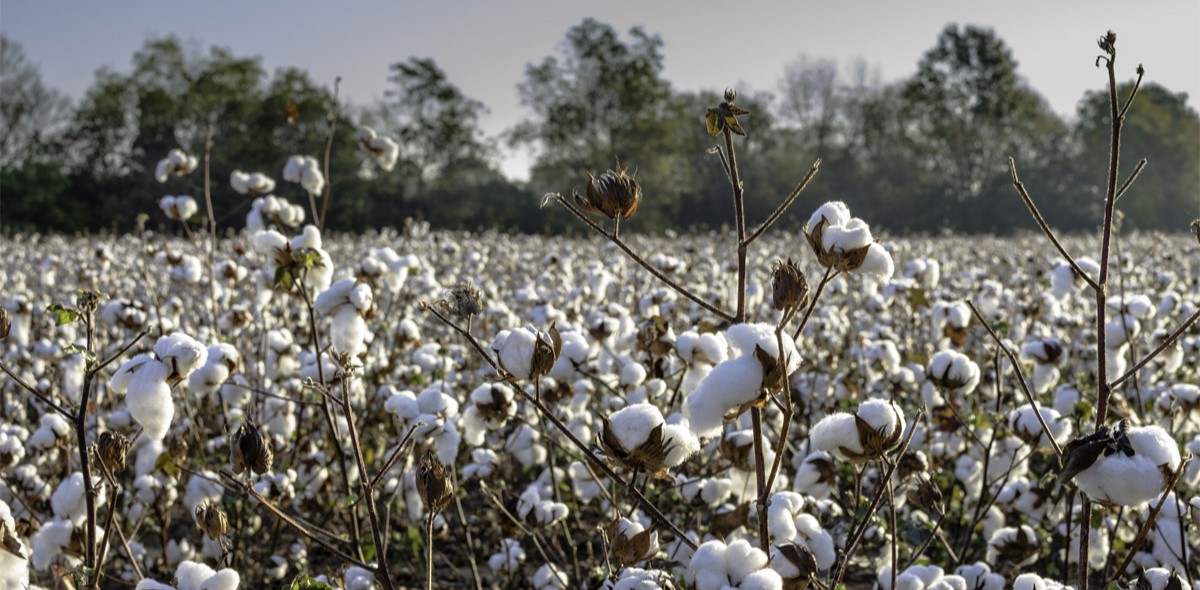
Georgia is renowned for its vibrant agricultural industry, with cotton playing a significant role in the state's economy and history. As one of the top cotton-producing states in the U.S., Georgia boasts a rich legacy of cotton cultivation, dating back to the 1700s. The state's favorable climate and fertile soil have contributed to the success of cotton farming, making Georgia a powerhouse in the industry.
In this article, we'll delve into 11 fascinating facts about Georgia's cotton production, exploring the state's pivotal role in shaping the cotton market and its enduring impact on the agricultural landscape. From historical milestones to modern-day innovations, these facts shed light on the dynamic and influential nature of Georgia's cotton industry, offering a captivating glimpse into the world of cotton farming in the Peach State. Let's embark on a journey through Georgia's cotton fields and unravel the intriguing facets of this time-honored agricultural tradition.
Key Takeaways:
- Georgia’s warm climate and fertile soil make it a top cotton-producing state in the U.S., boosting the economy and creating jobs.
- The future of Georgia’s cotton industry looks bright, with a commitment to innovation and sustainability, contributing to the global cotton market.
Georgia is One of the Top Cotton-Producing States in the U.S.
Georgia, known for its rich agricultural heritage, stands as one of the leading cotton-producing states in the United States. The state's warm climate and fertile soil provide an ideal environment for cultivating cotton, contributing significantly to the nation's cotton production.
The Cotton Industry Plays a Pivotal Role in Georgia's Economy.
The cotton industry holds a prominent position in Georgia's economy, bolstering the state's economic growth and providing numerous employment opportunities. With a strong emphasis on cotton farming and processing, Georgia's economy benefits from the substantial revenue generated by the cotton industry.
Georgia’s Cotton History Dates Back to the 1700s.
The cultivation of cotton in Georgia traces its roots back to the 1700s, marking a significant historical legacy for the state. The evolution of cotton farming in Georgia has played a pivotal role in shaping the state's agricultural landscape and cultural identity.
The State's Climate and Soil Favor Cotton Cultivation.
Georgia's favorable climate and fertile soil create an optimal setting for cotton cultivation. The state's extended warm growing season and well-drained soils provide an advantageous environment for producing high-quality cotton crops.
Georgia's Cotton Production Encompasses Various Cotton Varieties.
The diverse cotton varieties cultivated in Georgia contribute to the state's multifaceted cotton production. From upland cotton, known for its versatility, to Pima cotton, prized for its exceptional quality, Georgia's cotton production encompasses a spectrum of distinct cotton varieties.
Cotton Farming in Georgia Involves Advanced Agricultural Practices.
The cotton farming practices in Georgia integrate advanced agricultural techniques and technologies to enhance productivity and sustainability. From precision agriculture methods to innovative irrigation systems, Georgia's cotton farmers embrace cutting-edge practices to optimize their yields.
Georgia Hosts the Annual Georgia Cotton Commission Meeting.
The Georgia Cotton Commission convenes annually, providing a platform for industry stakeholders to discuss pertinent issues and advancements in the cotton sector. This gathering serves as a catalyst for fostering collaboration and driving progress within Georgia's cotton industry.
The Georgia Cotton Museum Showcases the State's Cotton Heritage.
Located in the heart of Georgia, the Georgia Cotton Museum offers a captivating journey through the state's rich cotton heritage. Visitors can explore exhibits that chronicle the evolution of cotton farming in Georgia, offering a compelling glimpse into the industry's historical significance.
Georgia's Cotton Industry Faces Challenges and Innovations.
Amidst its prominence, Georgia's cotton industry encounters various challenges, including market fluctuations and technological advancements. However, the industry remains resilient, continually embracing innovations and sustainable practices to navigate these obstacles.
The Future of Georgia's Cotton Industry Holds Promise.
With a steadfast commitment to innovation and sustainability, the future of Georgia's cotton industry shines brightly. The state's dedication to advancing cotton farming practices and fostering industry growth underscores a promising trajectory for the cotton sector in Georgia.
Georgia's Cotton Industry Contributes to the Global Cotton Market.
As a key player in the global cotton market, Georgia's cotton industry exerts a significant influence on the international trade and consumption of cotton. The state's contributions bolster the global cotton supply, reinforcing its pivotal role in the broader cotton industry landscape.
The cotton industry in Georgia stands as a cornerstone of the state's agricultural prowess, weaving together a rich tapestry of historical significance, economic impact, and agricultural innovation. From its enduring legacy rooted in the 1700s to its pivotal role in shaping Georgia's economy, cotton remains an integral aspect of the state's agricultural heritage. As Georgia continues to uphold its position as a leading cotton-producing state, the industry's resilience, commitment to sustainability, and global influence underscore its enduring significance within the fabric of Georgia's agricultural landscape.
Conclusion
In conclusion, these 11 Georgia cotton facts shed light on the significance of cotton in the state's history, economy, and agriculture. Georgia's rich soil and favorable climate have made it a prime location for cotton cultivation, contributing to its status as a leading cotton-producing state. The evolution of cotton farming techniques, the impact of cotton on Georgia's economy, and the state's pivotal role in the cotton industry collectively underscore the profound influence of this crop. As Georgia continues to uphold its legacy as a prominent cotton producer, these facts serve as a testament to the enduring importance of cotton in the state's cultural and economic landscape.
FAQs
Q: What is the history of cotton production in Georgia?
A: Cotton has played a pivotal role in Georgia's history, dating back to the early 18th century when it emerged as a dominant crop, shaping the state's economy and society.
Q: How does cotton contribute to Georgia's economy?
A: Cotton significantly impacts Georgia's economy by generating revenue, providing employment opportunities, and supporting various industries, including textiles and manufacturing.
Was this page helpful?
Our commitment to delivering trustworthy and engaging content is at the heart of what we do. Each fact on our site is contributed by real users like you, bringing a wealth of diverse insights and information. To ensure the highest standards of accuracy and reliability, our dedicated editors meticulously review each submission. This process guarantees that the facts we share are not only fascinating but also credible. Trust in our commitment to quality and authenticity as you explore and learn with us.


